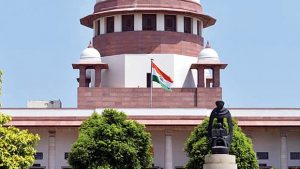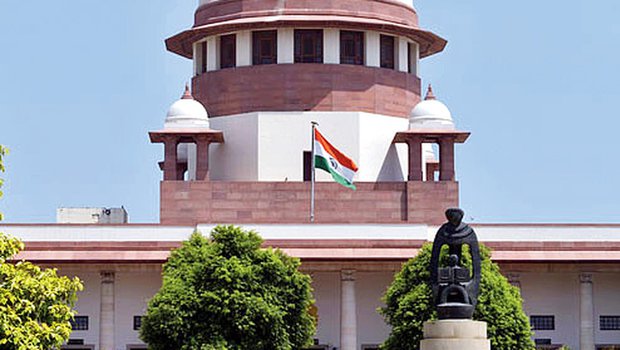 Janjivan Bureau / New Delhi : The Supreme Court on Friday dismissed the Enforcement Directorate’s petition challenging a Delhi High Court order granting bail to Karnataka Congress leader DK Shivakumar in a money laundering case.
Janjivan Bureau / New Delhi : The Supreme Court on Friday dismissed the Enforcement Directorate’s petition challenging a Delhi High Court order granting bail to Karnataka Congress leader DK Shivakumar in a money laundering case.
“This is not the way people of the country should be treated. Mr Mehta, you should read the dissent in Sabarimala review…It’s extremely important…It is for people like you to educate and instruct the officials that our judgments are not to be played with,” a Bench headed by Justice Rohinton F Nariman told Solicitor General Tushar Mehta who represented the ED.
The Delhi High Court had last month granted bail to Shivakumar who is also facing charges under the Income Tax Act.
The Bench issued notice on Shivakumar’s petition seeking quashing of charges against him levelled by the Income Tax Department.
As the Supreme Court referred the issue of discriminatory religious practices to a seven-judge Bench on Wednesday, the minority verdict delivered by Justice Rohinton F Nariman and Justice DY Chandrachud had frowned upon attempts to thwart its 2018 order allowing entry of women of all age groups into the Sabarimala temple in Kerala.
“Bona fide criticism of a judgment, albeit of the highest court of the land, is certainly permissible, but thwarting, or encouraging persons to thwart, the directions or orders of the highest court cannot be countenanced in our Constitutional scheme of things,” Justice Nariman, writing the minority verdict for himself and Justice Chandrachud, had said.
“After all, in India’s tryst with destiny, we have chosen to be wedded to the rule of law as laid down by the Constitution of India. Let every person remember that the “holy book” is the Constitution of India, and it is with this book in hand that the citizens of India march together as a nation, so that they may move forward in all spheres of human endeavour to achieve the great goals set out by this “Magna Carta” or Great Charter of India,” the two judges said.
“The Constitution places a non-negotiable obligation on all authorities to enforce the judgments of this court. The duty to do so arises because it is necessary to preserve the rule of law. If those whose duty it is to comply were to have discretion on whether or not to abide by a decision of the court, the rule of law would be set at naught,” the minority verdict cautioned.
“Judicial remedies are provided to stakeholders before a judgment is pronounced and even thereafter. That, indeed, is how the proceedings in review in the present case have been initiated. Hence arguments have been addressed, exchanged between counsel and considered with the sense of objectivity and fairness on which the judicial process rests. These remedies within a rule of law framework provide recourse to all those who may be and are affected by the course of a judicial decision.
“When the process is complete and a decision is pronounced, it is the decision of the Supreme Court and binds everyone. Compliance is not a matter of option. If it were to be so, the authority of the court could be diluted at the option of those who are bound to comply with its verdicts,” read the minority verdict.
“Organised acts of resistance to thwart the implementation of this judgment must be put down firmly. Yet in devising modalities for compliance, a solution which provides lasting peace, while at the same time reaffirming human dignity as a fundamental constitutional value, should be adopted. Consistent with the duties inhering in it, we expect the state government to ensure that the rule of law is preserved,” Justice Nariman said regretting his inability to agree with the majority verdict delivered by CJI Ranjan Gogoi, Justice AM Khanwilkar and Justice Indu Malhotra.
The minority verdict directed the Kerala government to give wide publicity to the judgment through the medium of television, newspapers, etc and take steps to secure the confidence of the community in order to ensure the fulfilment of constitutional values through broad-based consultations with representatives of all affected interests so that the modalities devised for implementing the judgment of the court meet the genuine concerns of all segments of the community.
On the majority’s decision to refer the issue to a larger Bench of seven judges, Justice Nariman said, “What a future constitution bench or larger bench, if constituted by the learned Chief Justice of India, may or may not do when considering the other issues pending before this court is, strictly speaking, not before this court at all.”

















